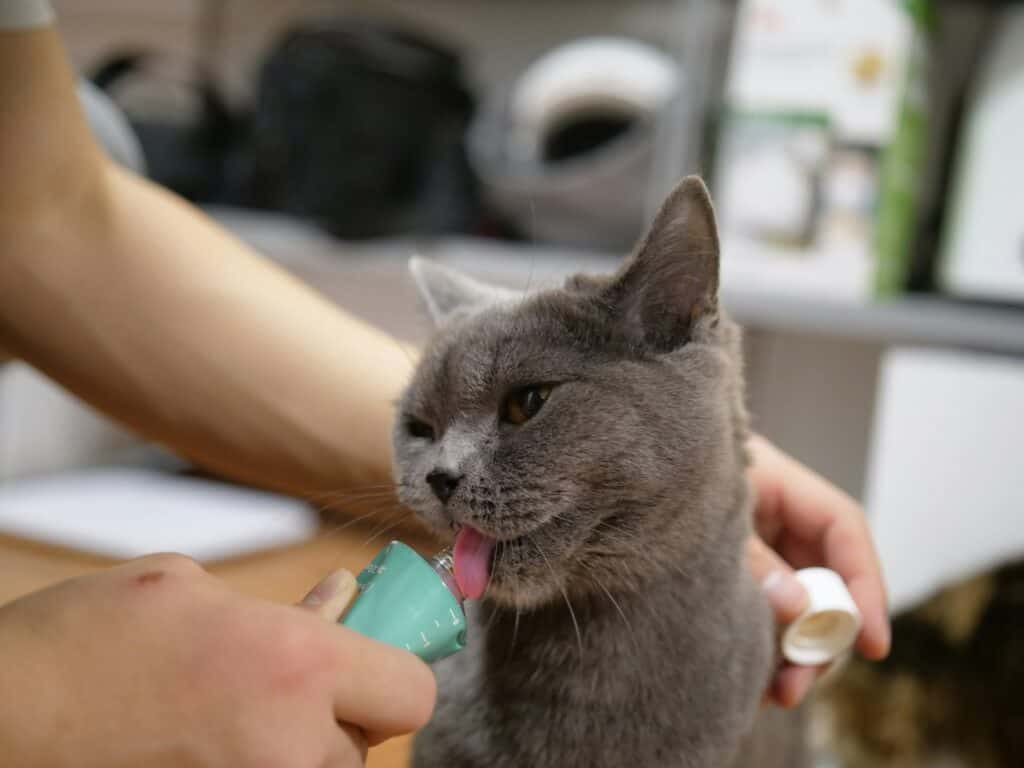Check how old is your pet in human years using our Pet Age Calculator.
As a cat owner, I know how important it is to keep our furry friends healthy and happy. With so much information out there, it can be overwhelming to find the right resources tailored specifically for cats.
That’s why I’ve gathered some cat-friendly pet health resources that make it easier to navigate everything from nutrition to preventive care.
Whether you’re a new cat parent or a seasoned pro, having access to reliable information can make all the difference in your pet’s well-being. Let’s explore the best resources available to ensure our feline companions live their best lives.
You’ll discover tips and tools that cater to their unique needs, so you can feel confident in your choices for their health.
Table Of Contents
- 1 Understanding Cat Friendly Pet Health Resources
- 2 Types of Cat Friendly Health Resources
- 3 Online Resources for Cat Owners
- 4 Local Support for Cat Health
- 5 Conclusion
- 6 Frequently Asked Questions
- 6.1 What are some essential tips for keeping my cat healthy?
- 6.2 How can I find a cat-friendly veterinarian?
- 6.3 What nutritional guidance should I follow for my cat?
- 6.4 Where can I find reliable resources on cat behavior?
- 6.5 How can community support help me as a cat owner?
- 6.6 What preventive health measures should I consider for my cat?
- 6.7 What are cat-friendly clinics, and how do they differ from regular veterinary practices?
- 6.8 Are there online communities for sharing cat care experiences?
Understanding Cat Friendly Pet Health Resources
Cat friendly pet health resources encompass a range of information and services tailored specifically for feline care. These resources address diverse aspects of cat health, including nutrition, behavior, and preventive care. By utilizing these resources, I can ensure my cat receives the best possible care.
Nutritional Guidance
Nutritional guidance from veterinarians or pet nutritionists helps me provide balanced diets for my cat. Resources like the Association of American Feed Control Officials (AAFCO) offer guidelines on pet food labeling, ensuring my cat’s nutritional needs are met.
Websites like PetMD and the ASPCA provide comprehensive information on dietary requirements for different life stages.
Veterinary Care
Veterinary care resources include directories of cat-friendly vets who prioritize feline health. The American Association of Feline Practitioners (AAFP) lists practices that cater to cats’ unique needs, ensuring I find providers experienced in treating feline patients.
Regular check-ups and vaccinations keep my cat protected from common illnesses.
Behavioral Resources
Behavioral resources help address any issues that arise in my cat’s habits. Books by feline behaviorists, online courses, and support groups provide strategies for dealing with problems like litter box aversion or aggression.
Websites such as Jackson Galaxy’s cat behavior resources offer evidence-based solutions that enhance the quality of life for me and my cat.
Preventive Health Measures
Preventive health measures, such as regular dental care, contribute to my cat’s long-term well-being. Resources from the American Veterinary Dental College emphasize the importance of oral hygiene.
Additionally, parasite prevention guides, available through veterinary clinics or reputable websites, equip me with information on protecting my cat from fleas, ticks, and other parasites.
Community Support
Community support networks, including online forums and local cat clubs, connect me with other cat owners. These platforms facilitate the exchange of tips and experiences, enhancing my understanding of feline health care.
Engaging with these communities allows me to share resources and access valuable advice from fellow cat enthusiasts.
Leveraging these cat friendly pet health resources empowers me to make informed decisions, ultimately promoting a healthier, happier life for my feline companion.
Types of Cat Friendly Health Resources
Cat friendly health resources encompass various services and guidance designed to enhance feline well-being. Among these resources, veterinary services and nutritional guides play crucial roles in maintaining a cat’s health.
Veterinary Services
Cat friendly clinics and practices create a less stressful environment for cats during veterinary visits. These facilities employ trained staff skilled in Feline Friendly Handling, which includes gentle examinations often performed in non-traditional ways, such as within a carrier or under a blanket.
Clinics typically offer cat-only waiting areas or designated spaces to reduce anxiety caused by the presence of dogs or loud noises.
Accredited clinics affirm their commitment to cat care by meeting standards set by organizations like iCatCare. Since 2012, over 4,000 clinics worldwide have earned accreditation as Cat Friendly Clinics.
Veterinary teams at these clinics provide education on essential topics, including cat behavior, nutrition, parasite prevention, and environmental enrichment.
Such education empowers owners to support their cats’ health at home. Examples of these services include 143 Veterinary Services, which focus on minimizing stress throughout the veterinary experience by understanding feline behavior and needs.
Nutritional Guides
Proper nutrition significantly impacts a cat’s long-term health. Cat foods that meet AAFCO (Association of American Feed Control Officials) standards ensure complete and balanced nutrition tailored to distinct life stages, including kittenhood, adulthood, pregnancy, and senior years.
Reading ingredient lists is crucial; meat or seafood should rank among the top ingredients to guarantee adequate animal-based protein and essential fatty acids.
Cats’ nutritional requirements shift with age; senior cats often benefit from diets rich in moisture—canned food is typically preferred—and may require joint supplements or specialized foods for conditions like kidney disease or diabetes.
Feeding smaller, more frequent meals helps maintain weight and overall health in older cats.
Veterinary guidance proves invaluable in selecting suitable diets and supplements tailored to individual cats’ needs, ensuring they receive the proper nutrition for their unique circumstances.
Online Resources for Cat Owners
Accessing quality information is crucial for cat owners. Here’s a selection of reputable online resources that provide valuable insights into cat health, nutrition, and care.
Informative Websites
1. WebMD Cat Health Center
WebMD Cat Health Center offers comprehensive, vet-reviewed articles on various health topics. Covered areas include diet, nutrition, preventive care, common health conditions, vaccination schedules, grooming tips, and behavioral issues. The website also features a medication database and a free newsletter for ongoing health tips, making it a reliable source of information.
2. ASPCA General Cat Care
ASPCA’s website delivers practical advice for new cat owners. It emphasizes the importance of meeting a cat’s taurine needs through proper nutrition, avoiding toxic foods, and recognizing when to consult a veterinarian. The emphasis on fresh water availability and high-quality cat food ensures all life stages are covered. A printable care guide is available for convenience.
3. Cornell Feline Health Center
Hosted by Cornell University, the Cornell Feline Health Center provides detailed information on dental disease, respiratory infections, pancreatitis, poisons, and vaccines. The site includes video guides on dental care and emergency preparedness tips for cat owners, creating a well-rounded resource for serious health concerns.
4. Cat Friendly Homes
Cat Friendly Homes promotes understanding natural feline behaviors and emphasizes routine preventive care. The website offers free downloadable brochures on essential topics such as veterinary visits, diabetes, and vaccines. This resource advocates for a cat-friendly approach to ownership.
5. PetMD and About.com Cat Section
PetMD is a veterinarian-certified platform offering accessible information on cat health issues. About.com’s cat section features user-friendly articles alongside natural remedy insights from EarthClinic. However, these should complement veterinary advice, not replace it.
Community Forums
1. EarthClinic’s Cat Remedies Section
EarthClinic’s forum hosts discussions among cat owners sharing natural health options. Users share anecdotal insights that may help in understanding alternative treatments; however, it’s pivotal to remember these should not replace professional medical advice.
2. Holistic Cat Forums
Several forums, like Sandy Arora’s holistic cat forum, facilitate community discussions on holistic care. Though some may require subscriptions, they offer valuable space for exchanging experiences and asking questions about feline health.
These online resources and community forums support cat owners with information on feline health, nutrition, behavior management, and preventive care.
Local Support for Cat Health
Local support for cat health plays a crucial role in promoting feline welfare. Various organizations provide resources that help cat owners manage behavior issues and ensure proper care.
Animal Shelters and Rescue Organizations
Animal shelters and rescue organizations offer essential programs to support cat welfare. These groups facilitate adoption, provide behavioral counseling, and ensure access to veterinary care.
For instance, many shelters coordinate spay/neuter initiatives, which directly contribute to reducing overpopulation. They also conduct community outreach campaigns focused on responsible cat ownership.
Organizations like the Humane Veterinary Medical Alliance deliver continuing education for veterinary professionals, supply free resources on cat health topics, and advocate for enhanced access to care within shelters.
Cat-Specific Clinics
Cat-specific clinics are vital for providing tailored veterinary care, aiming to minimize stress and ensure positive experiences for felines. Certified as Cat Friendly Practices, these clinics utilize specialized techniques to create calm environments. For example:
- Nashville Cat Clinic offers personalized, compassionate care, online pet portals, and trusted pharmacy partnerships for effective medication management.
- The Animal Clinic in Hendersonville, TN, another Cat Friendly Certified® facility, combines stress-reduction protocols with comprehensive care, onsite diagnostics, and surgery options.
- Embassy Veterinary Center in Knoxville, TN, boasts a Gold Certified Cat Friendly Practice status with dedicated waiting areas, cat-specific exam rooms, and staff trained to recognize feline stress signals.
These clinics prioritize the health and comfort of cats, aiming for better health outcomes and a positive experience for both cats and their owners.
Conclusion
Finding reliable resources for cat health can be a game changer for any cat owner. With the right information at your fingertips you can make informed decisions that enhance your cat’s well-being.
Whether it’s understanding nutritional needs or accessing veterinary care cat-friendly resources are invaluable.
I encourage you to explore the various tools and communities available. Connecting with other cat owners can provide support and new insights.
Remember that your cat’s health is a journey and utilizing these resources can lead to a happier and healthier life for your feline friend.
Frequently Asked Questions
What are some essential tips for keeping my cat healthy?
A balanced diet, regular veterinary check-ups, and mental stimulation are crucial for your cat’s health. Ensure they get enough exercise and engage in playtime to keep them active. Regular dental care and preventive measures, like vaccinations and parasite control, also contribute to their well-being.
How can I find a cat-friendly veterinarian?
Look for veterinarians who are specifically trained in Feline Friendly Handling and have a calm environment tailored for cats. You can check directories from organizations like iCatCare or ask for recommendations from local cat owners via community forums.
What nutritional guidance should I follow for my cat?
Consult your veterinarian for personalized dietary advice. Follow AAFCO guidelines to provide a balanced diet suitable for your cat’s age, breed, and health needs. Always read ingredient labels and adapt their diet as they age or if health issues arise.
Where can I find reliable resources on cat behavior?
Online resources like the ASPCA General Cat Care, Cornell Feline Health Center, and community forums like EarthClinic offer valuable insights into cat behavior. These platforms provide tips on training, socialization, and understanding your cat’s needs.
How can community support help me as a cat owner?
Community support networks help cat owners exchange tips, insights, and experiences. Local shelters and rescue organizations offer resources, such as behavioral counseling and veterinary care assistance, promoting responsible ownership and better care for your cat.
What preventive health measures should I consider for my cat?
Regular veterinary check-ups, vaccinations, and parasite prevention are key. Routine dental care is also important. Keeping your cat’s environment clean and stress-free encourages better health and happiness over time.
What are cat-friendly clinics, and how do they differ from regular veterinary practices?
Cat-friendly clinics are designed to minimize stress, featuring calm environments and trained staff familiar with feline behaviors. They often have cat-only waiting areas, reducing anxiety and improving the overall veterinary experience for your pet.
Are there online communities for sharing cat care experiences?
Yes, various online forums and social media groups, such as holistic cat forums or dedicated Facebook groups, allow cat owners to share experiences, advice, and support each other in managing their cats’ health and behavior issues.





